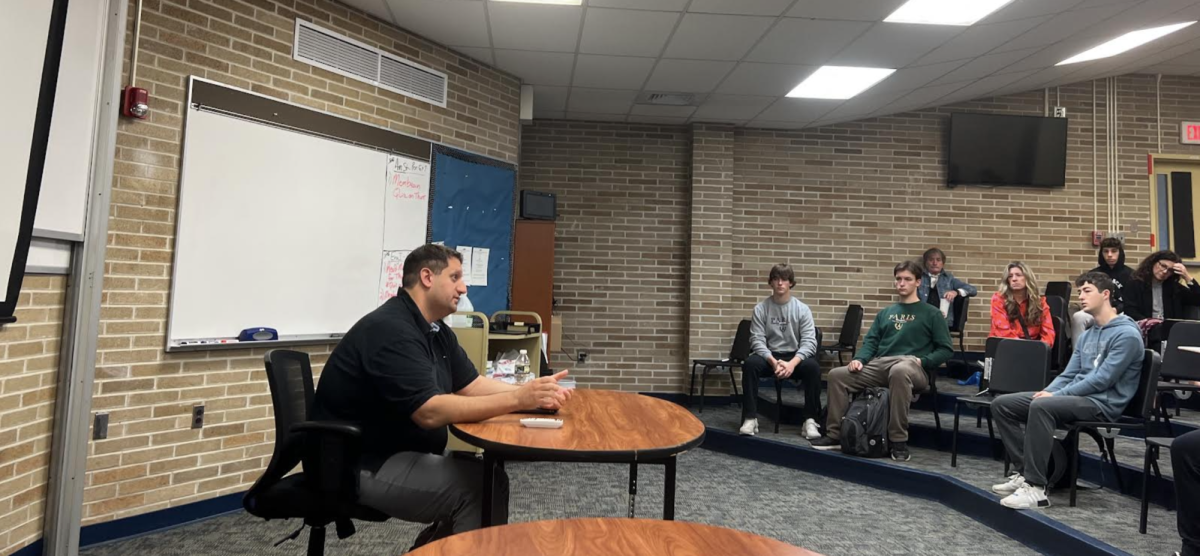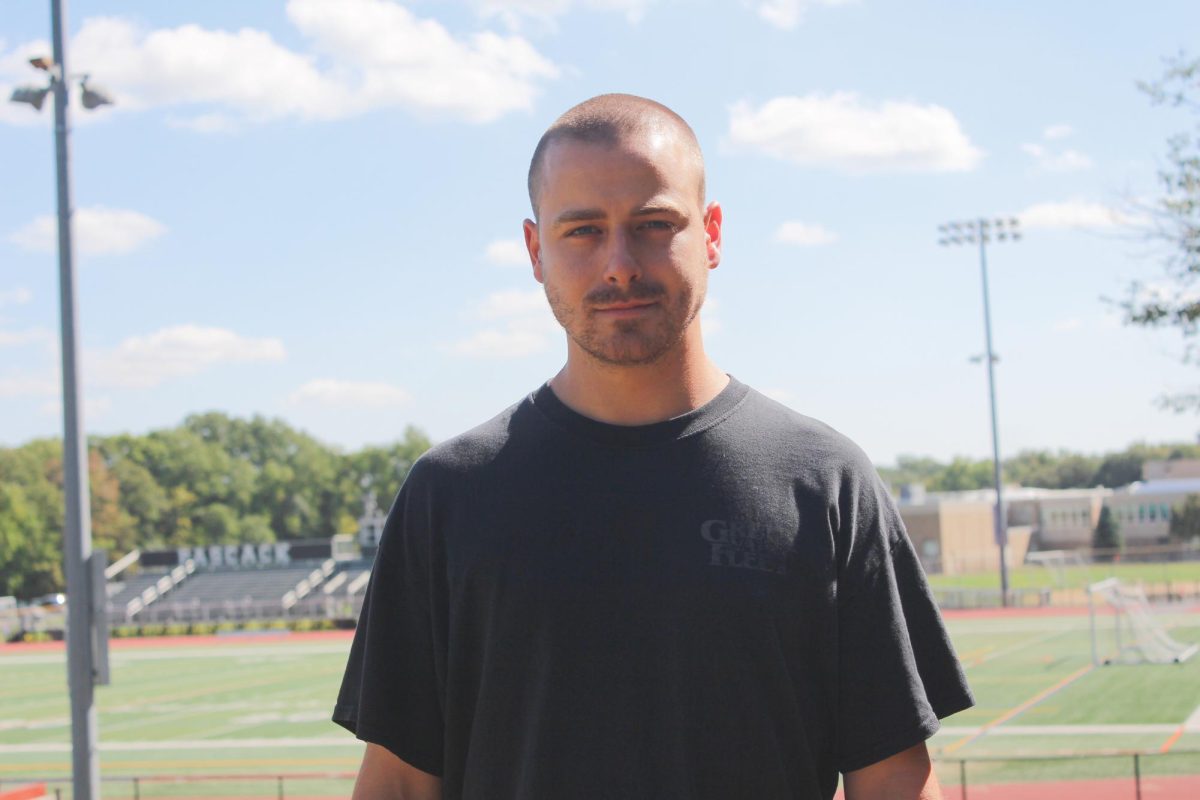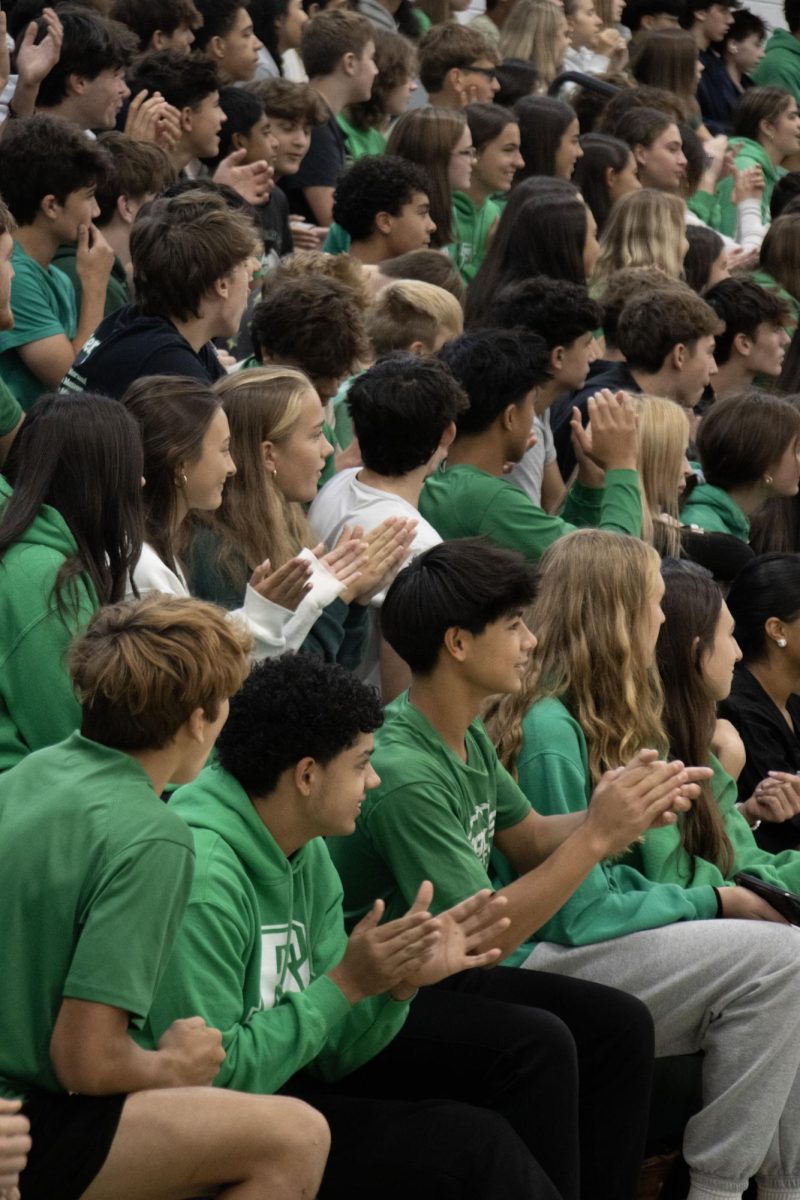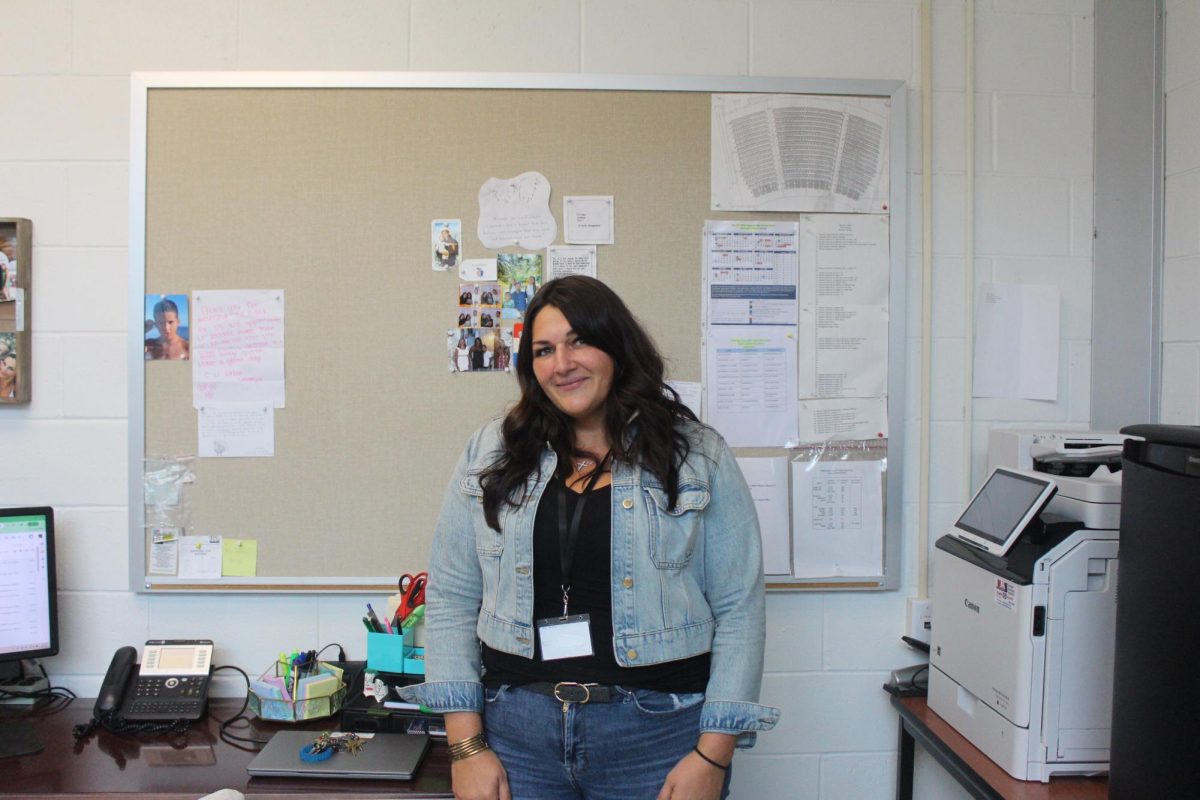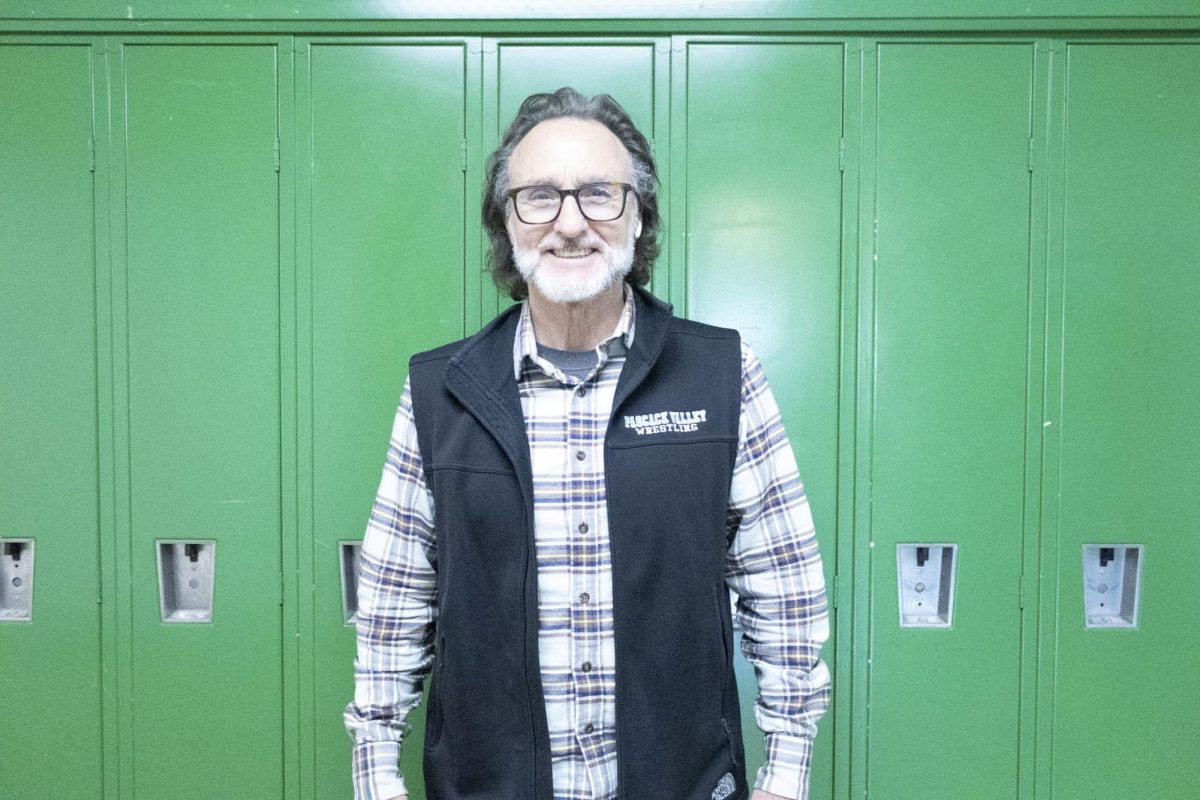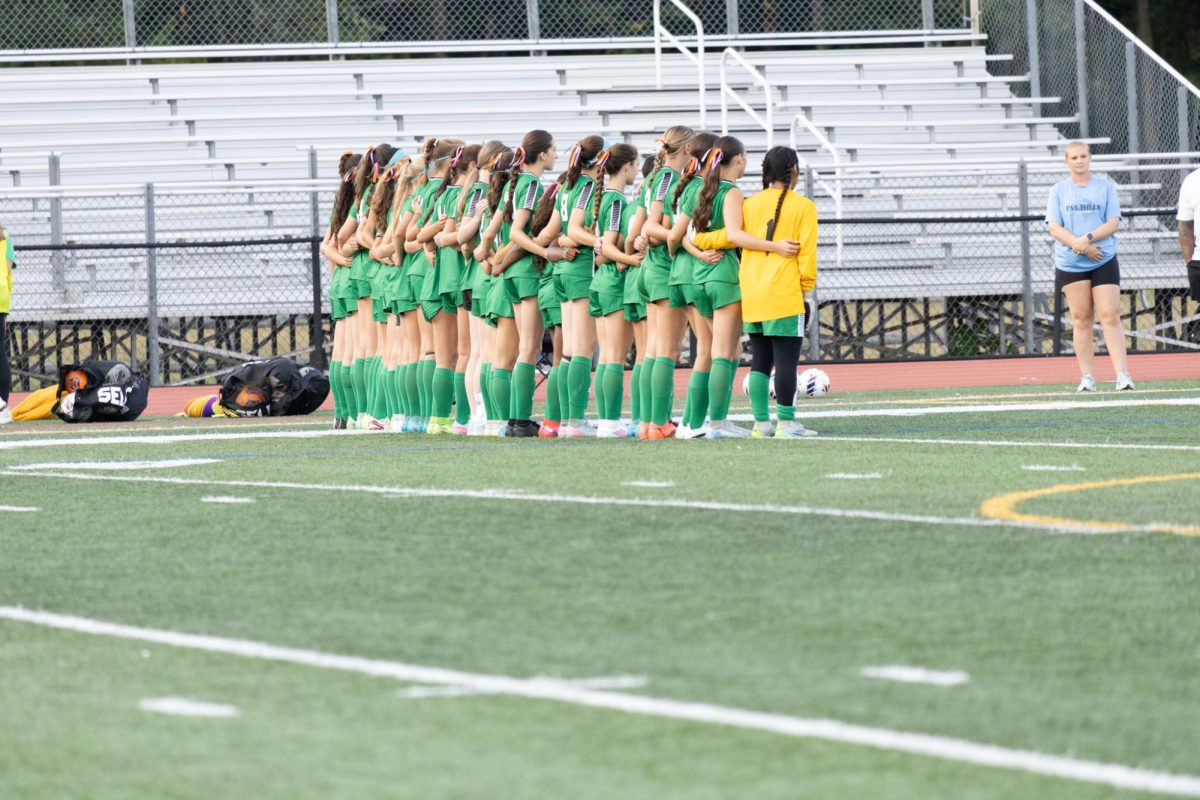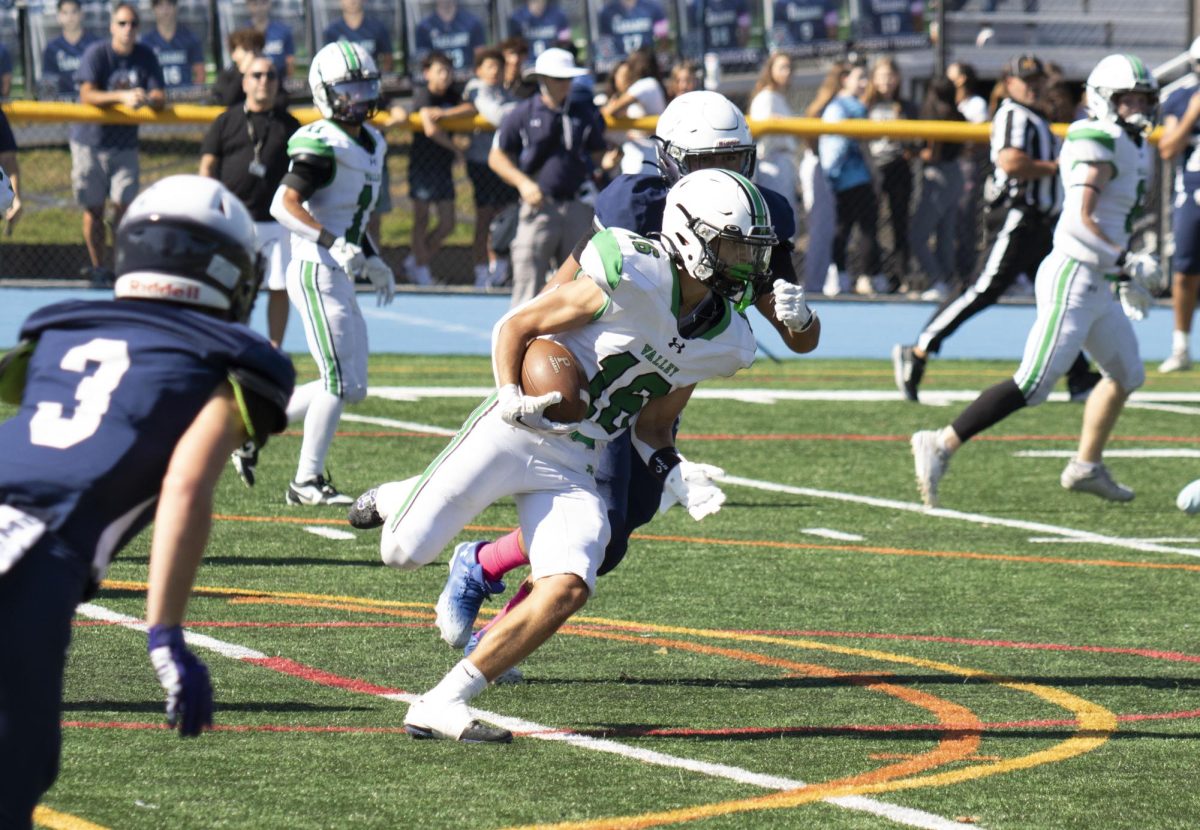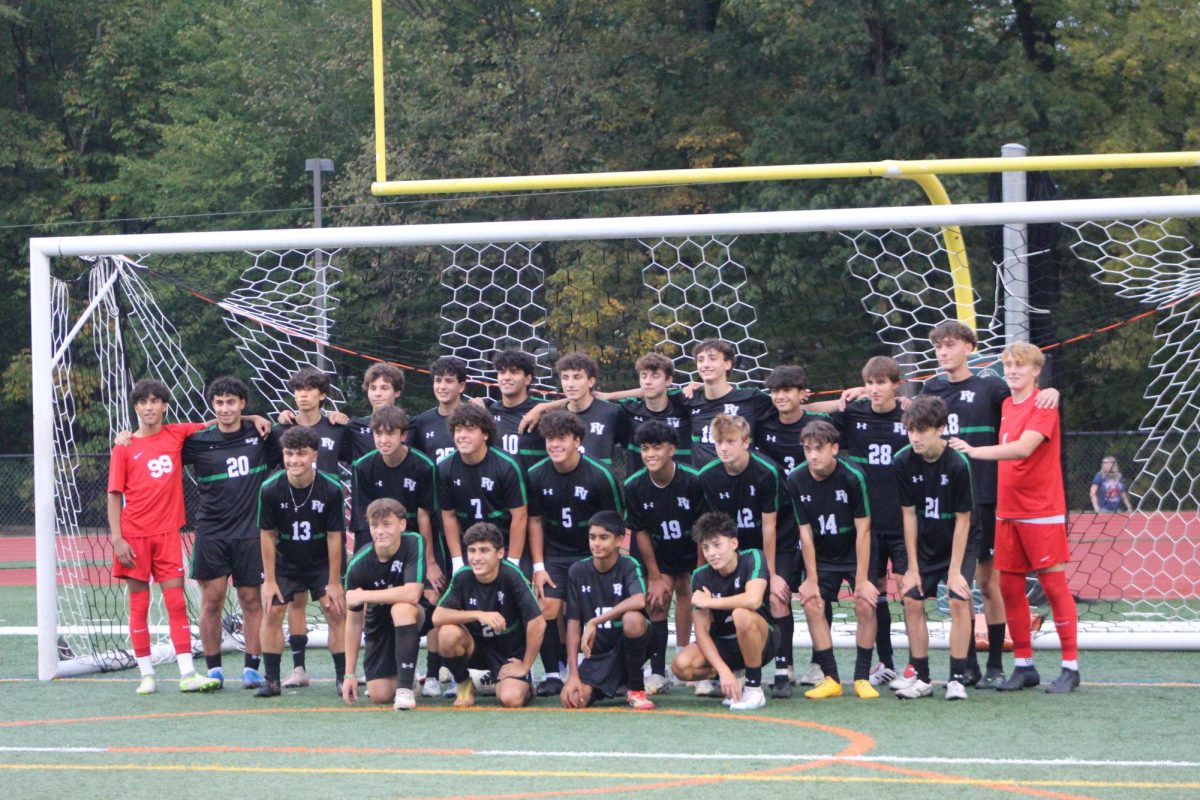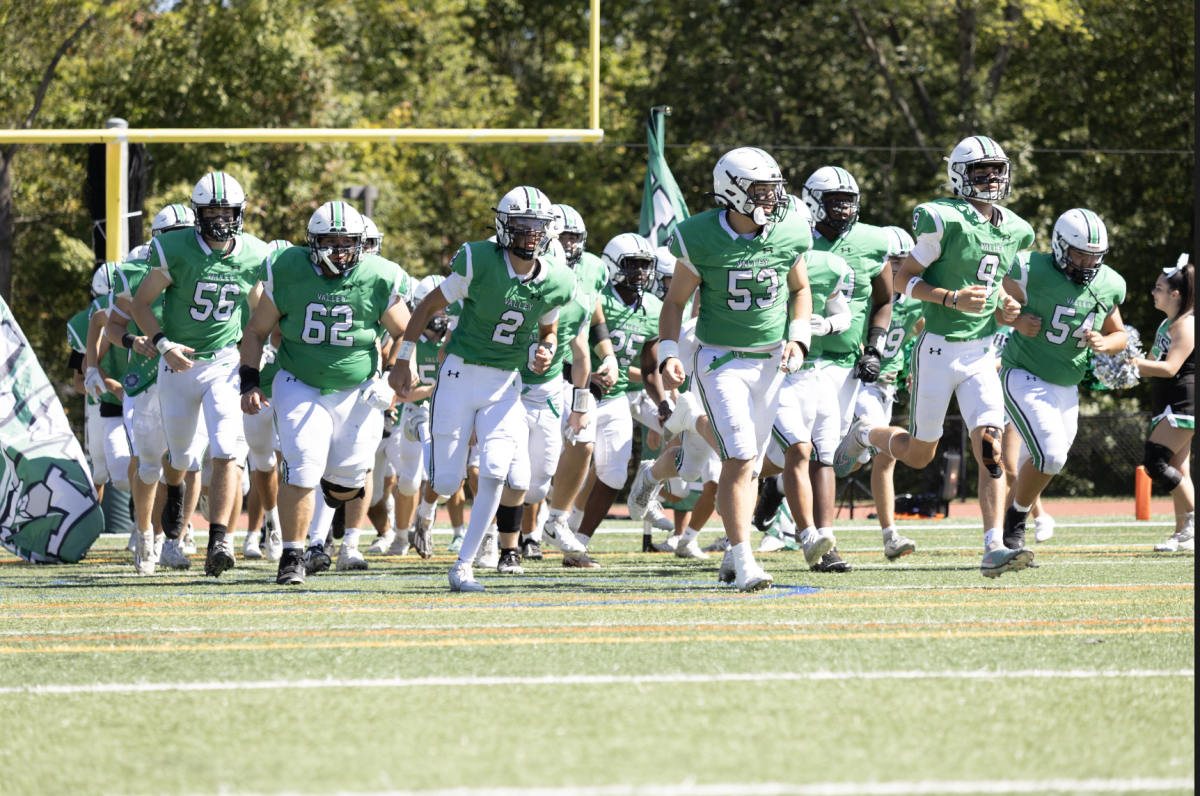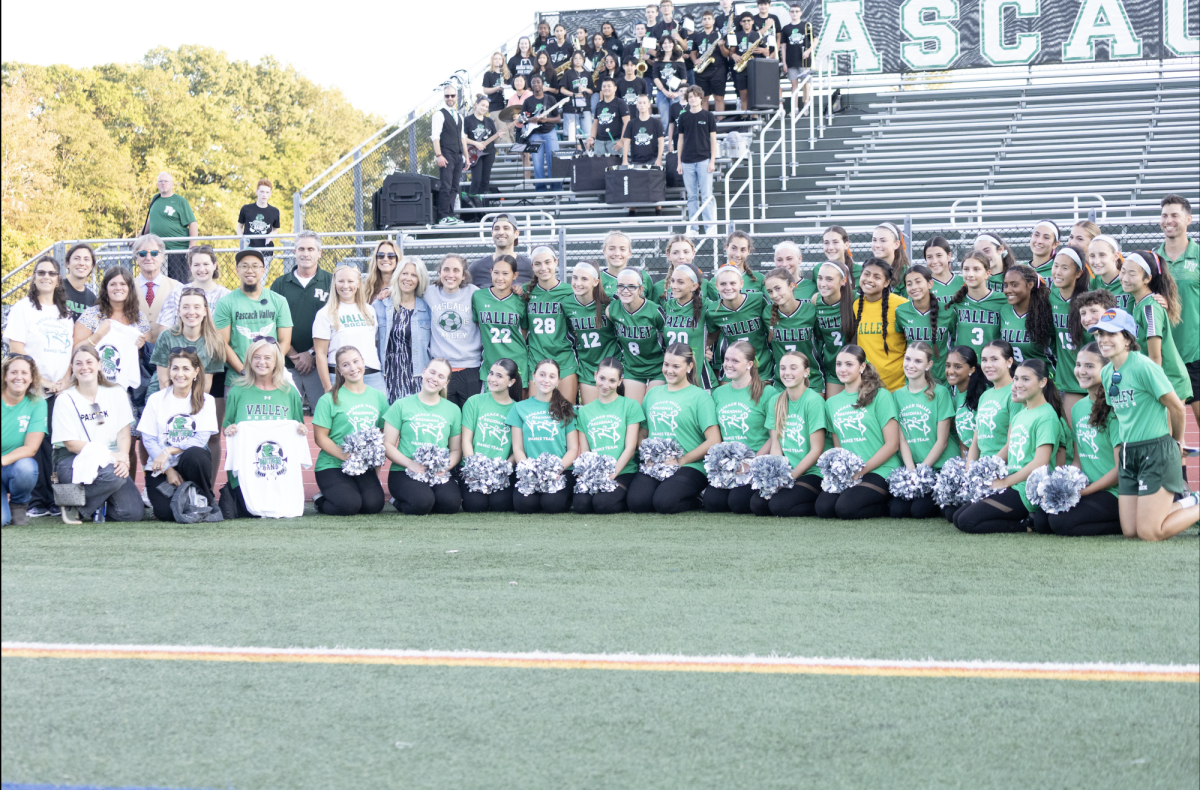Over one hundred students from Pascack Valley’s World Culture Club, Interfaith Club, This Week in Politics Club, Human Rights League, and AP Government classes, as well as other interested students, joined together at 7:30 am on the morning of Oct. 17 for a question-and-answer style discussion with Pascack Valley Special Education Dr. Christopher Guinta.
Guinta has a master’s degree in Modern Middle Eastern History; as such, Valley students were offered the opportunity to ask questions about the conflict and to receive well-informed responses about this conflict and its likely escalation.
On Oct. 7, 2023, the Gaza-based terrorist group Hamas launched a surprise invasion of Israel, killing civilians and taking hostages back to Gaza. Since then, the Hamas invasion has ignited yet another flame in the Israeli-Palestinian conflict that has existed for ages. As Israel prepares for a counter-attack on the ground after sending in countless air strikes, many Pascack Valley students have discussed the ongoing conflict in their history classes.
After Hamas’s initial invasion on Oct. 7, Israel declared war on Hamas. As of now, this is a war strictly between Israel and Hamas. Hamas functions as both the governing power in Gaza and as a terrorist group.
Guinta answered many students’ questions, resulting in a discussion about the likely escalation, the humanitarian crisis, the relationship and future involvement of other countries, the history of the conflict, and what could happen as this conflict progresses.
Humanitarian crisis
“So, at this point, there’s multiple dangers,” Guinta said. “There’s a humanitarian crisis. There’s a possibility of an Israeli invasion at any time, and there’s a possibility that the war will escalate into other countries as well: most likely, Lebanon, possibly, Iran.”
According to Guinta, Israel has sent 360,000 troops to the Gaza border but has not invaded yet, likely due to the United States’s instruction to give the currently trapped Palestinian civilians time to evacuate Gaza City. As of the time of the meeting, there was no power or water in Gaza and borders were closed on all sides.
“This humanitarian crisis gets worse and worse by the day,” Guinta said. “So unfortunately more than anyone in the Middle East, the civilians will suffer more than anything on both the Israeli and the Palestinian sides.”
Military tactics
Guinta explained that the likely future of this war will involve a guerrilla-style war, with both sides using “hit-and-run tactics,” involving many singular bombs and attacks.
“Historically, Hamas has hidden out in hospitals and schools and mosques,” Guinta said. “So it makes it very hard to find exactly where they are. They’re usually surrounded by civilians who are not openly fighting Israel.”
According to Guinta, Hamas has been utilizing a complex tunnel system under Gaza City and parts of Israel to manage its attacks and hide from counter-attacks. The tunnels keep Hamas safe from Israeli air strikes on Gaza and make it difficult for the Israeli military to make progress in wiping out Hamas without hurting civilians.
“You have to understand that Hamas is using the Palestinian people as shields against the [Israeli military],” Guinta said. “They don’t want them to move south because that gives them protection. The people that are going to pay the price the most are the civilians. There’s going to be a lot of casualties on both sides.”
Israel has one of the best intelligence agencies in the world, according to Guinta. Similar to the CIA, Israel’s Mossad is one of the most diligent and effective agencies in the world.
Guinta explained that Mossad had some knowledge of the tunnels under Gaza, but the attack was a complete surprise.
Due to the large scale of this attack and the civilian support of Hamas in Gaza, Guinta estimates that “a few hundred thousand people” would be willing to fight for Hamas, increasing the scale of the conflict.
“That number is just a little bit too big for Mossad to take on themselves,” Guinta said. “They need the national Israeli military or the IDF to help do that.”
According to Guinta, it is likely that Hamas is using tunnels also to hide the Israeli hostages. However, the recovery of the hostages seems like a secondary task for Israel, after the goal of eradicating Hamas’s threat to Israel.
“At this point, Israel certainly said the gloves are off,” Guinta said. “They said ‘We can change the face of Gaza forever. This is going to happen.’”
Other countries’ involvement
Regarding the humanitarian crisis in Gaza, Guinta explained that the United States is pressuring Egypt to open up the Sinai Peninsula to Palestinian refugees. However, historically, the Arab nations surrounding Israel, mainly Jordan and Egypt, have not allowed Palestinians into their countries during these conflicts.
“We really need Egypt to step up at this point,” Guinta said. “Those civilians are going to need a place to go; they’re going to have to go to the Sinai peninsula.”
The United States has served the role of international defense of Israel, as the US has instructed Egypt to open its borders to allow for the evacuation so that Israel can commence its ground attacks. According to Guinta, the United States has also spoken about possible involvement if the conflict escalates on an international level and Israel is attacked on another front.
“At this point, Israel has a peace treaty with both Egypt and Jordan. They do not have treaties with Lebanon, Syria, or Iran,” Guinta said. “I believe we have stated that if other countries jumped into this conflict between Israel and Hamas, that [the United States] will stop them from doing so.”
As Guinta explained, one of the other major threats to Israel at this time is the terror group Hezbollah, located in the south of Lebanon, on the northern border of Israel.
“But other than Hezbollah,” Guinta said. “I don’t believe that any other country or group around Israel has given their support to Hamas.”
President Joe Biden visited Israel on Oct.18, to show support to the Israeli people. According to Guinta, this visit is likely with the hope that Israel will hold off its ground invasion of Gaza for a while longer and introduce the United States as an involved third party.
“It kind of puts us squarely in support of Israel, as opposed to the Palestinians,” Guinta said. “ It may anger a lot of countries around the greater Middle East as well.”
In terms of other involved nations, it is well known that Iran has funded and supported Hamas. According to Guinta, if Iran is to start an attack on Israel, there is a carrier of United States troops in the Mediterranean Sea ready to join the Israeli troops in this war.
History behind the conflict
This conflict between the Israelis and Palestinians has been tense since before Israel’s creation in 1948. According to Guinta, there have been many violent encounters and wars between the states for years.
“If you look at terrorism across the world, every terrorist group—whether it’s Al-Qaeda, or ISIS, or Hezbollah, Hamas—in their founding documents or charters, they all state the Israeli-Palestinian conflict as the main reason that they exist,” Guinta said. “So if we didn’t get past this and Israel and Palestine do come to an agreement, it would certainly turn down some of the Jihadism that you see across the Middle East, at least to an extent.”
Most of the disagreement centers around which state gets what land, and, as Guinta stated, “UN Resolution 242 basically states that there should be a two-state solution: the Palestinians will be in Gaza and the West Bank, and Israel will have the rest.”
Israel has recently encroached on this agreement by having settlements built in the West Bank, which is the major flame fueling this fire at the moment, according to Guinta.
“If [Israel] were to remove the settlers from the West Bank, then I can see the peace process emerging pretty rapidly in my opinion,” Guinta said.
Valley students’ involvement
PV History and Government teacher Jeff Jasper spoke on his inspiration to hold this meeting, “The superintendent put out her email to the community, which influenced how we wanted to run the meeting,” Jasper said. “We wanted to show that this is a safe place, a safe space. Secondly, we want voices to be heard. We want people to ask and say what they can and know that we will listen. ”
As this meeting was a way for student voices to be heard, there are other events within the school community through which students are helping make a difference regarding this conflict. Valley’s Interfaith Club held a bake sale on Monday, Oct 16., donating its funds to Dror Israel, an Israeli emergency fund, and The Human Rights League is hosting a bake sale on Tuesday, Oct. 24 with the funds going to Doctors without Borders.
This is a very difficult situation, so if any students are seeking support, Principal John Puccio and Superintendent Sarah Bilotti have reached out to the student body about talking to school counselors for any additional support during this time.
While Guinta predicts that the end of this conflict is likely far in the future, and the nature of the war changes every hour, Guinta’s insight into the conflict at this moment allowed many Valley students to get their questions answered and for the students to experience an unbiased and informed perspective as they continue to watch this conflict unfold.


